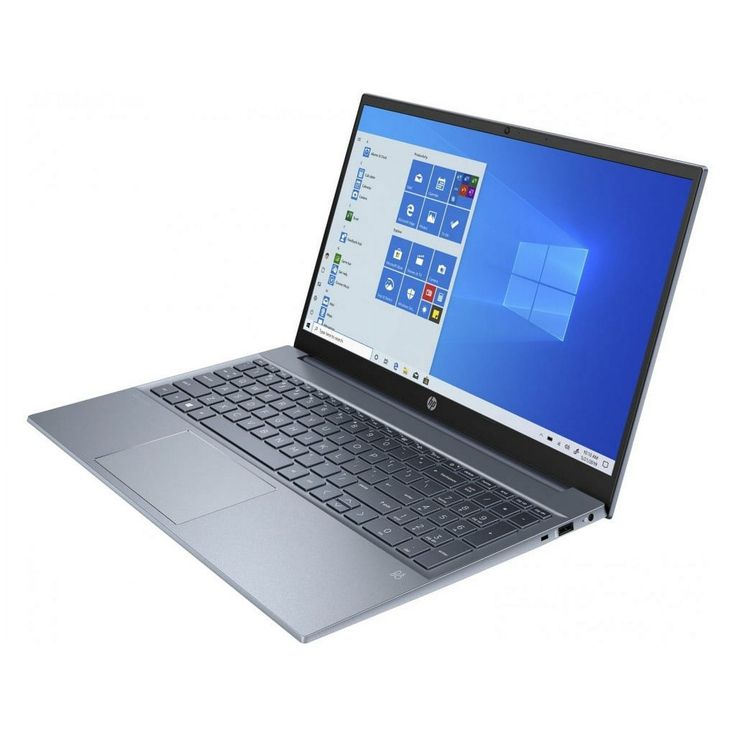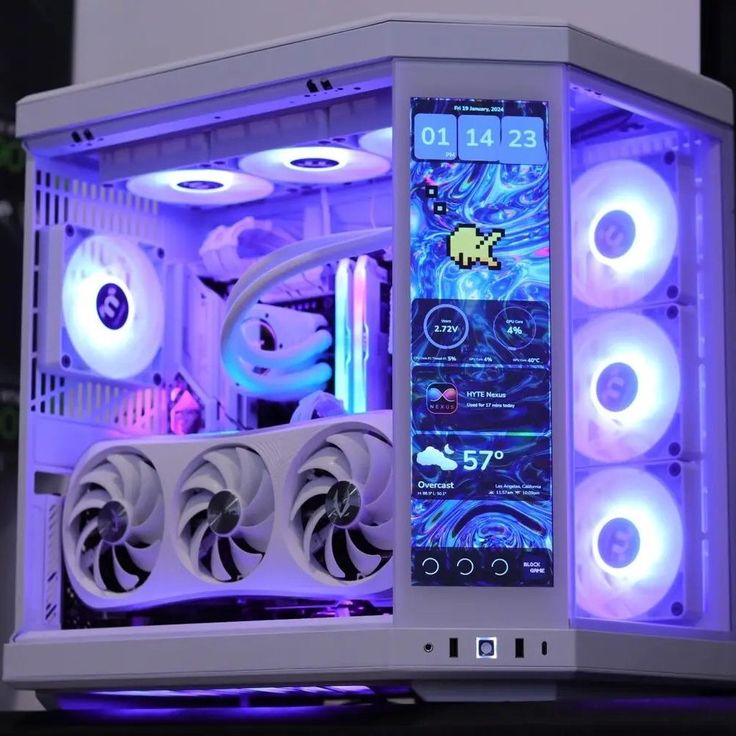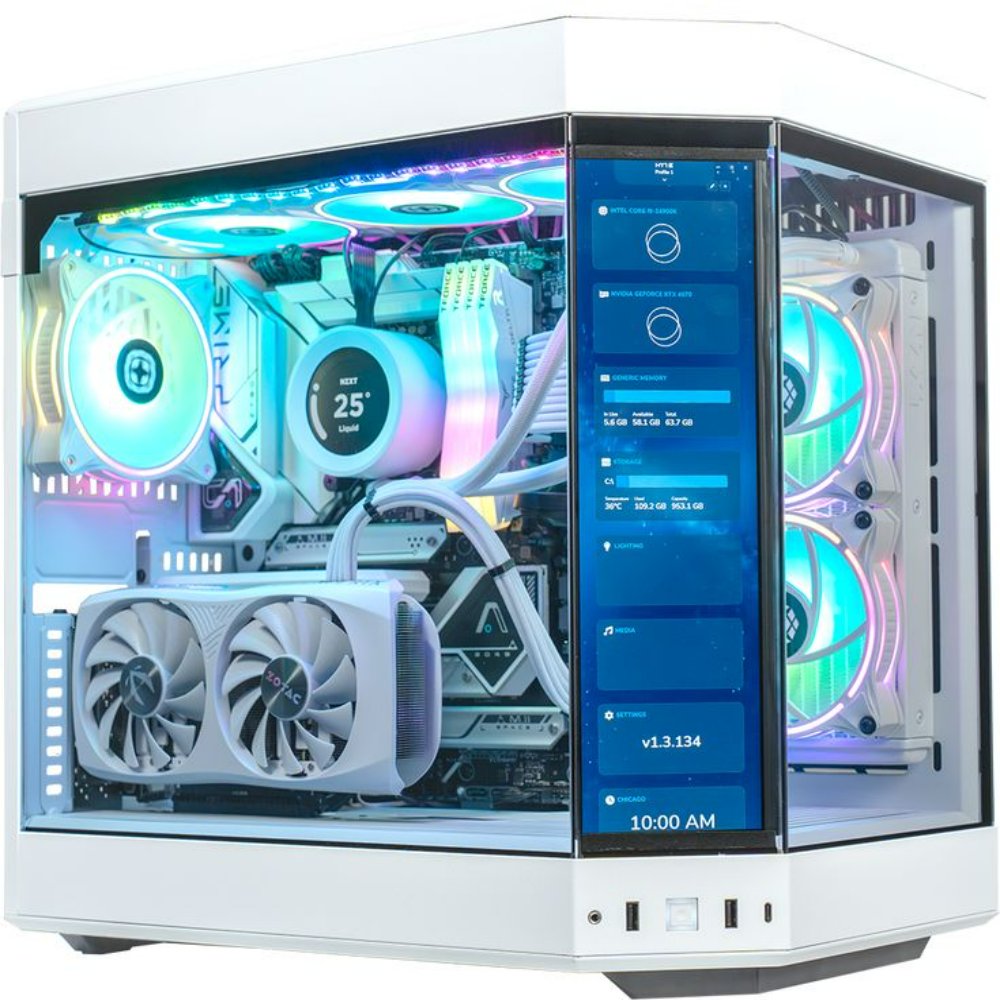Common Causes of Loud Computer Fans
Dealing with a noisy computer fan can be frustrating. Understanding the common causes, however, can help in finding the right solutions. Here are some prevalent reasons why a computer fan might be louder than usual:
- Overheating: The primary function of a fan is to cool down the internal components. When these parts get too hot, the fan has to work harder, thus becoming louder.
- Dust Build-Up: Accumulation of dust in the fans and vents can impede airflow, causing the fan to work harder and produce more noise.
- Age of the Fan: Fans tend to wear out with time. Older fans may become noisier as they become less efficient.
- High CPU Usage: Tasks that demand a lot of processing power can lead to increased fan speed to prevent overheating, thus increasing noise.
- Poor Ventilation: If the computer’s vents are blocked or it’s placed in a tight spot, it can lead to poor ventilation and fan noise.
Understanding these factors can guide you on the right path to addressing the question: “why is my computer fan so loud?”
Dust Build-up and How to Clean It
Dust accumulation is a common cause of noisy computer fans. It restricts airflow and forces the fan to work harder, increasing noise. Luckily, you can manage this issue at home with simple tools and steps.
- Turn Off Your Computer: Before starting, make sure to completely shut down your PC. It ensures safety and prevents any damage.
- Unplug the Computer: Disconnect all cables to avoid any electrical hazards while cleaning.
- Open the Computer Case: Use a screwdriver if necessary to access the inside of your computer.
- Use Compressed Air: Blow dust away from the fan and other components. Hold the can upright to avoid moisture damage.
- Clean the Vents: Dust can also accumulate in the vents. Use a small brush or cloth to gently clean them.
- Check the Fan Blades: Sometimes, debris stuck on the blades can cause extra noise. Carefully wipe each blade.
- Reassemble and Test: Once everything is clean, put your computer back together and turn it on. It should run quieter if dust was the culprit.
Performing regular cleanings, at least every three to six months, can prevent dust from causing fan noise issues and other potential overheating problems.

Balancing Performance and Cooling
Finding a balance between performance and cooling is key to reducing fan noise without overheating. Below are some tips to achieve this balance:
- Monitor Temperature: Keep an eye on internal temperatures. Use software tools if necessary.
- Adjust Power Settings: Lower power consumption can reduce heat. Check settings for energy-saving modes.
- Clean Regularly: Dust build-up affects temperature. Clean fans and components often.
- Optimize Airflow: Arrange cables and hardware to allow for good airflow inside the case.
- Limit Resource-Heavy Tasks: Avoid running too many demanding applications at once.
- Consider Cooling Solutions: Adding or improving cooling systems may help balance performance demands.
By monitoring and adjusting your computer’s performance and cooling, you can reduce fan noise. Remember, managing the balance is crucial for a quieter and efficient PC.
The Role of Software in Fan Control
Managing your computer’s fan noise often involves hardware tweaks, but software also plays a significant part. Hre are ways software can quiet a loud computer fan:
- Use Fan Control Software: These programs allow you to adjust fan speeds. Lower the speed to reduce noise when high performance is not needed.
- Update Drivers: Outdated or corrupt drivers can cause fans to misbehave. Keep your system drivers updated.
- Check for Malware: Malware can cause high CPU usage, leading to loud fan noise. Run regular scans and remove any threats found.
- Change System Settings: Look for power-saving or quiet mode options in your system settings. These can lower fan speeds automatically.
- Close Unnecessary Programs: Keeping unused programs open may increase CPU load and fan noise. Close them when not in use.
By using these software-based solutions in conjunction with regular maintenance, you can keep your computer fan’s noise in check. Remember to track temperature levels to ensure your PC remains cool while you adjust these settings to avoid overheating.

Upgrading Your Cooling System
Sometimes, despite regular cleaning and software optimization, your computer fan might still be loud. This could be a sign that it’s time to upgrade your cooling system. Here are some effective upgrades you can consider to quiet a noisy fan:
- Install a High-Quality Fan: Quality matters. Invest in a fan known for silent operation and efficient cooling.
- Add More Fans: Increase airflow by adding more fans to your case. Make sure they’re correctly positioned to optimize air circulation.
- Consider Liquid Cooling: For a near-silent operation, liquid cooling systems can be a great solution. They excel in drawing heat away from major components.
- Update Heatsinks: Large, high-capacity heatsinks can dissipate more heat which may reduce the fan’s workload and noise.
- Use Fan Gaskets: These reduce vibration and noise by providing a cushion between the fan and the case.
- Replace Thermal Paste: Old thermal paste may not conduct heat effectively. Applying fresh paste improves heat transfer from the CPU to the cooler.
By upgrading your cooling system, you not only quiet your computer fan but also enhance the longevity of your PC’s components.
Quieting Down Without Overheating
Maintaining silence in your computer’s operation without leading to overheating is a delicate task. Here’s how to keep the noise down while ensuring your PC stays cool:
- Evaluate Your Environment: Place your computer in a well-ventilated area. Avoid cramped spaces.
- Upgrade to Silent Fans: Choose fans designed for low noise output without sacrificing airflow.
- Install Software Controls: Software that manages fan speeds can balance cooling with acoustic comfort.
- Regular Maintenance: Keep internal components dust-free to ensure optimal fan operation and heat dissipation.
- Opt for Quality Thermal Compound: A premium thermal paste can improve heat conduction, allowing fans to run quieter.
- Control Room Temperature: A cooler room can reduce the computer’s need to expel heat aggressively.
- Consider Your Workload: Space out intensive tasks if possible to manage heat generation incrementally.
By implementing these tips, you can reduce fan noise while preventing your computer from overheating. Consistency in maintenance and careful choice of components play a crucial role. Remember, a noisy fan is not just a sound issue; it’s a sign that your PC may be working harder than necessary to keep cool.

When to Seek Professional Help
Despite your best efforts to quiet a loud computer fan, sometimes the noise persists. This may indicate a deeper issue that requires a professional’s touch. Here are some signs that it’s time to consult a technician:
- Persistent High Noise Levels: If the fan noise doesn’t drop after you’ve cleaned and optimized your system, seek help.
- Overheating Despite Cooling Upgrades: When upgrades don’t reduce the heat, it might be a complex problem.
- Unusual Fan Behaviors: If the fan spins erratically or makes grinding noises, a professional should check it.
- System Crashes: Frequent shutdowns or performance issues might be linked to cooling system failures. This needs expert assessment.
- Error Messages: Sometimes, the system alerts you to fan or temperature problems. Don’t ignore these warnings.
- After Installing New Components: If you’re not confident in installing hardware, or post-installation issues arise, get professional support.
- If Comfort Is Key: For peace of mind, sometimes it’s best to leave repairs to those who repair PCs every day.
Remember, a technician can offer solutions that maintain the balance between a quiet fan and a cool system. Don’t hesitate to take your PC to a computer repair shop if you’re struggling with noisy fans and overheating issues. Taking action when necessary will extend the life of your computer and ensure optimal performance.